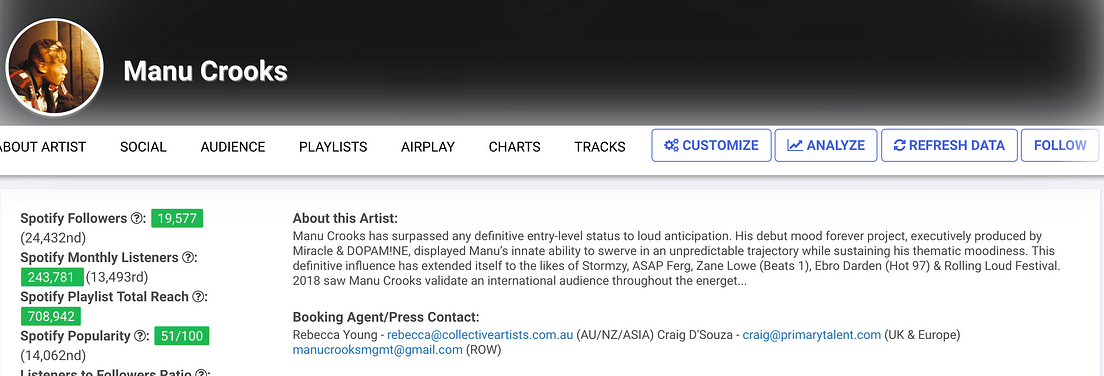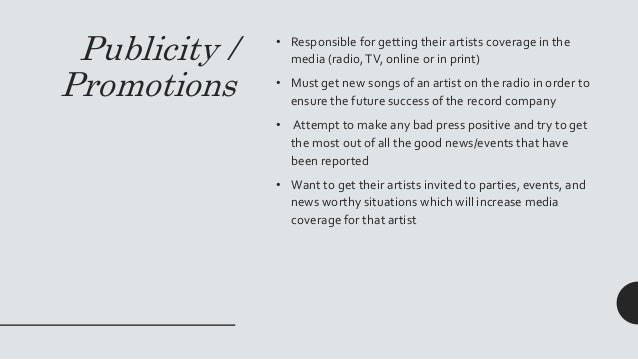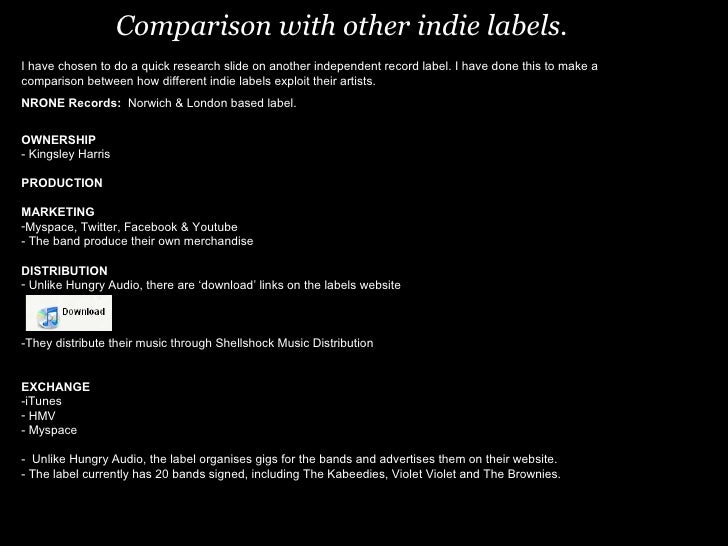43 pros and cons of independent record labels
PROS AND CONS OF MAJOR AND INDEPENDENT LABELS - Pokovsky Major Music Record Labels: Pros: Excessive Amounts Of Funds: Major labels have far greater amounts of funds at their disposal than indie record labels do. This extra money means that the major labels will be able to fund high-quality production, packaging, global physical distribution as well as digital distribution through the major online ... PROS AND CONS OF MAJOR AND INDEPENDENT LABELS … Apr 26, 2015 · Cons: Lack of Funds: This is a common problem for independent labels, being that they do range so greatly in size and success is funds. A lack of funding means a smaller budget for recording, production of packaging and distribution costs. Not to mention, tour support, merchandise and etc.
The Pros & Cons of Independent Record Labels - Music … Jun 04, 2015 · The pros of independent labels. Indies definitely pay more attention to the artists on their books than the larger labels. Many musicians signed to large labels find themselves in a battle for the attention of the execs, and end up feeling like ‘just another act’. With independent record labels, the ethos is much different.

Pros and cons of independent record labels
Independent label vs The Major labels. Pros and Cons! Aug 24, 2020 · The Pros and Cons of signing to a major label! Pros. Larger promotional budgets; More connections; More clout and influence; Can do business in bulk; Cons. Resources spread among many acts; Staff... Being an Independent Artist vs. Signing to a Record Label Here are the pros and cons of releasing your music with a record label: The Pros of Signing with a Record Label. 1. Available resources and budget: Established record labels have the resources and funding to provide support for mastering, distribution, album artwork creation, marketing, merchandise, touring, music videos, and other expenses ... Independent Artist Or Record Label Deal: The Entrepreneurial ... - Forbes The Pros And Cons Of Being An Independent Artist. ... Record labels mostly offer artists an advance upfront, and this is typically the only company that does such in the music industry. You should ...
Pros and cons of independent record labels. Artist Advice: Label vs Independent - Which Is The Better Route? The debate between label and independent is one that has raged on for decades. For artists, the model has traditionally been to work your way up, get a record deal and then tour based on your albums. In the digital age as distributors have made it easier to work outside of labels, other revenue streams have risen like streaming and merchandise ... The Pros & Cons of Independent Record Labels - Music World For Unsigned ... The cons of indie labels. The most obvious downside to independent record labels is their limited budget. This means that marketing and promotion has to be very carefully co-ordinated and planned, something the best indie labels do very well. They usually also know the studios, rehearsal rooms, engineers and producers that suit a lower budget ... The Pros and Cons of Independent Record Label Deals Oct 23, 2008 · The Pros of Working With an Indie Label . Indie labels generally have the freedom to work with whomever they like. There's no pressure like … The Pros and Cons of Independent Record Label Deals The common perception of a "record label" is one of the major record labels, located in Los Angeles or New York, which signs all of the major players. These major record labels, including Sony and Capitol Records, are major corporations with hundreds of millions of dollars behind them. This allows them to fully fund the biggest artists out there.
Independent Music Labels - The Pros & Cons Advantages of Indie. Independent music labels pay more attention to individual artists. This means you won't have to fight for attention from your label, as many artists who find themselves signed to major labels have to. There's only a limited budget (even if it's huge), and a limited number of staff members to help promote and retain artists ... Major vs. indie: Should you sign a record label deal? A major label has many more people working for them than an indie label. More people means you are less likely to work with the same person throughout your time at the label. Major labels have many experts in different areas (marketing, promotions, playlisting, radio tracking, distribution, etc.) compared to an indie, where fewer people take on ... The Benefits Of Choosing An Indie Label Over A Major Label By Musicians Indie record labels rank amongst the globe's top record labels and have their own significant benefits when compared with major labels. Of course, there are pros and cons of signing with an ... Pros & Cons Of Signing With Major Label vs. Indie Label vs. Staying ... 3. Big commission. The bigger an organization, the more it takes. Major labels don't split revenue with an artist as partners, it takes a bigger half. According to ASCAP, signing to a major label, the artist will be left with 10%-25% of royalties and everything else will be taken by a major label. 4.
Pros and Cons of Indie Record Labels You Need to Know Major Labels vs Independent Labels - TeenStar Jun 30, 2020 · Pros and cons of major record labels While the pros of a major record label may amount to a small list, bear in mind the value of each of these pros is immense. Pros Established powerful connections and influence. Vast funding for top-quality recording facilities. A global promotion and distribution capability. Pros And Cons To Starting Your Own Label | ReverbNation Blog This especially applies to the ever-expanding world of independent record labels. But forming your own label is no easy task, and most musicians are probably better off looking to team up with an already established one to help bring their music to listeners. If you're considering starting your own label, here's a few pros and cons to consider: Pros And Cons Of Being Signed To A Record Label The other main pro of being signed to a record label is that the studio time, production, promotion and other potentially expensive parts of creating and releasing music are paid for by the label. This is a big pro, as the cost of studio time, production services and promotion can be pretty hefty and difficult for a lot of independent artists ...
› post › prosandconsofindielabelsThe Pros and Cons of Independent Record Labels Feb 18, 2020 · Because the standard indie label itself is much smaller, it is likely to have fewer employees and a more fluid hierarchy. This seems a great improvement from the famous colleague, partner, and other overall label stress of major label deals, which some artists have gone as far as to deem untenable.
Indie vs. Major Record Labels: Which is Right for You? Indie vs. Major Record Labels. There are several factors worth considering when weighing the pros and cons of indie and major record labels: 1. Trust and Close Working Relationships. Indie labels and boutiques generally have the advantage here. They have smaller artist rosters, which means you will get more attention.
The Pros And Cons Of A Major-Label Record Deal | Disc Makers Blog The pros of a major-label record deal. The advance. One of the first things that every artist thinks about is that big label advance and, indeed, many major-label contracts include an advance to help you cover the cost of up-front expenses, including recording. This frees you up to focus on your music, which is awesome, but it is important to ...
The Pros and Cons of Independent Labels vs Major Record Labels ... - IMDb The Pros and Cons of Independent Labels vs Major Record Labels for Artists and Bands: With Bex Gregory, Peter Moore. n Episode 13 we look into the pros and cons of independent labels vs major labels for artists and bands, discussing everything from - What makes a record label 'indie'? to what are artist-friendly record label deals?
Being an Independent Artist vs. Signing to a Record Label Jul 29, 2019 · Here are the pros and cons of releasing your music with a record label: The Pros of Signing with a Record Label. 1. Available resources and budget: Established record labels have the resources and funding to provide support for mastering, distribution, album artwork creation, marketing, merchandise, touring, music videos, and other expenses. However, the …
Pros and Cons of Indie Record Labels You Need to Know Keep in mind, while larger record labels have money to throw around, they also excel in taking as much money as possible from YOU to pay back their expenses. With contracts like the 360 Deal, they can dip their fingers in all of your revenue streams, from social media to merchandise. While indie record labels have a smaller profit margin, they ...
Understanding the Pros and Cons of Label Record Deals Oct 27, 2019 · Pros. Even as technological innovations reshape the way people listen to music and purchase music, major labels still have a financial advantage over just about every indie label. Because they have higher revenue than smaller labels, they have more cash on hand to spend on promoting your record—which is exactly what you want.
sparkdroprecords.com › what-is-an-independentWhat Is An Independent Record Label- Pros & Cons Any recording label operating without the financial backing of the organizations behind major music labels is an indie label. While major labels run their distribution and publishing companies, indie labels mainly survive thanks to long-standing partnerships or short contracts with publishing and distribution companies. All the same, getting signed up with an independent record label remains ...
Understanding the Pros and Cons of Label Record Deals Pros. Even as technological innovations reshape the way people listen to music and purchase music, major labels still have a financial advantage over just about every indie label. Because they have higher revenue than smaller labels, they have more cash on hand to spend on promoting your record—which is exactly what you want.

How to find the email of (almost) anyone in the music industry | Pt.1 Do Your Research | by Jari ...
Indie Labels vs Major Labels: Pros, Cons, Difference & Which Label is ... Pros and cons of independent record labels. Pros: Deals that are more artist-friendly; More creative freedom and development for the artists; A closer team that can give you more attention; Cons: Smaller budgets compared to majors; Less influence and connections with the global music industry; Won't be capable of promoting as much as a major ...
Independent Vs. Major Record Labels - ccmubs The small budgets and small rosters of artists, independent labels typically don't have strong relationships with press companies. There are three major record labels that dominate the market: Universal Music Group, Sony Music Entertainment and Warner Music Group. Signing with a major record label comes with many pros and cons.
The Pros and Cons of Independent Record Labels Feb 18, 2020 · Generally, indie record labels will be willing to provide artists with relatively “empathetic” contracts. Such contracts are more likely to offer fair percentages (50/50 is the standard) to their artists.These arrangements usually earn artists more money than the standard 360 deals of huge label organizations. The shared ownership rights indie labels usually offer …
What Is An Independent Record Label- Pros & Cons Jul 27, 2021 · Any recording label operating without the financial backing of the organizations behind major music labels is an indie label. While major labels run their distribution and publishing companies, indie labels mainly survive thanks to long-standing partnerships or short contracts with publishing and distribution companies. All the same, getting signed up with an …
Record Labels: Major vs. Indie - xnilorecords.com Nevertheless, a 'true' Indie Label means they are independent from any Major Label. Now, there are numerous amounts of Indie labels; all varying in methods and genres and experience levels, etc. Therefore, my list of 'pros and cons' will touch on points that are common among almost all Indie labels, but again it may vary from label to ...











Post a Comment for "43 pros and cons of independent record labels"